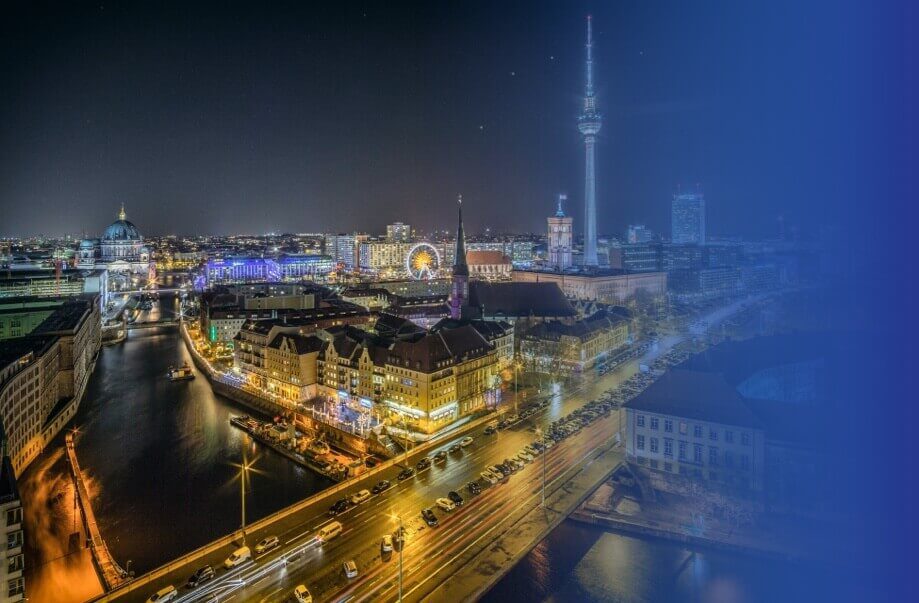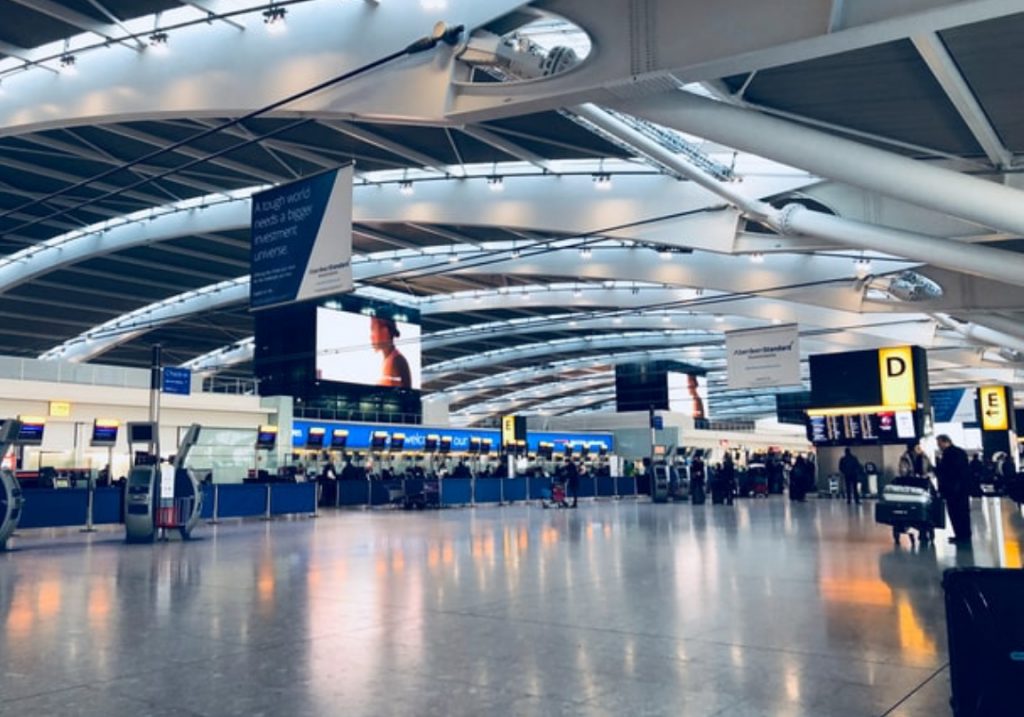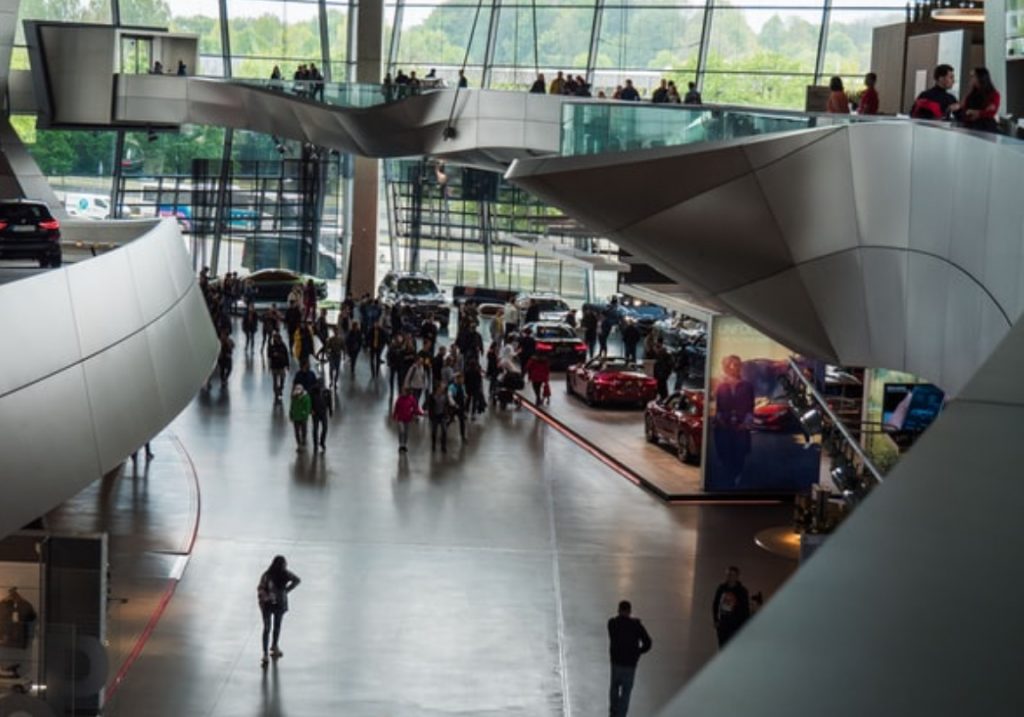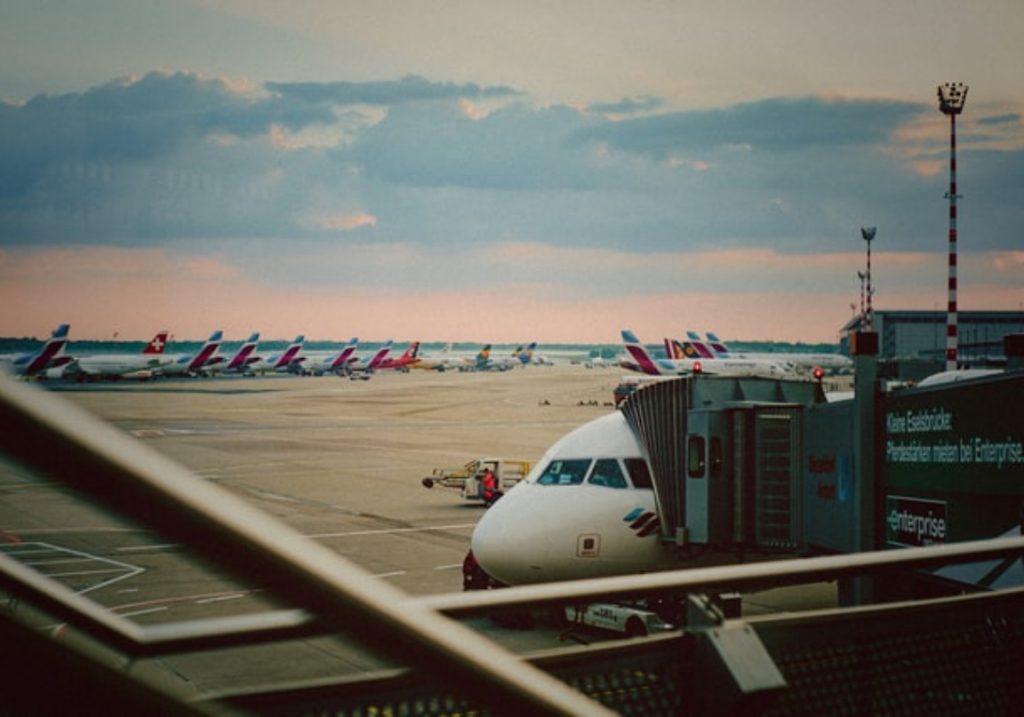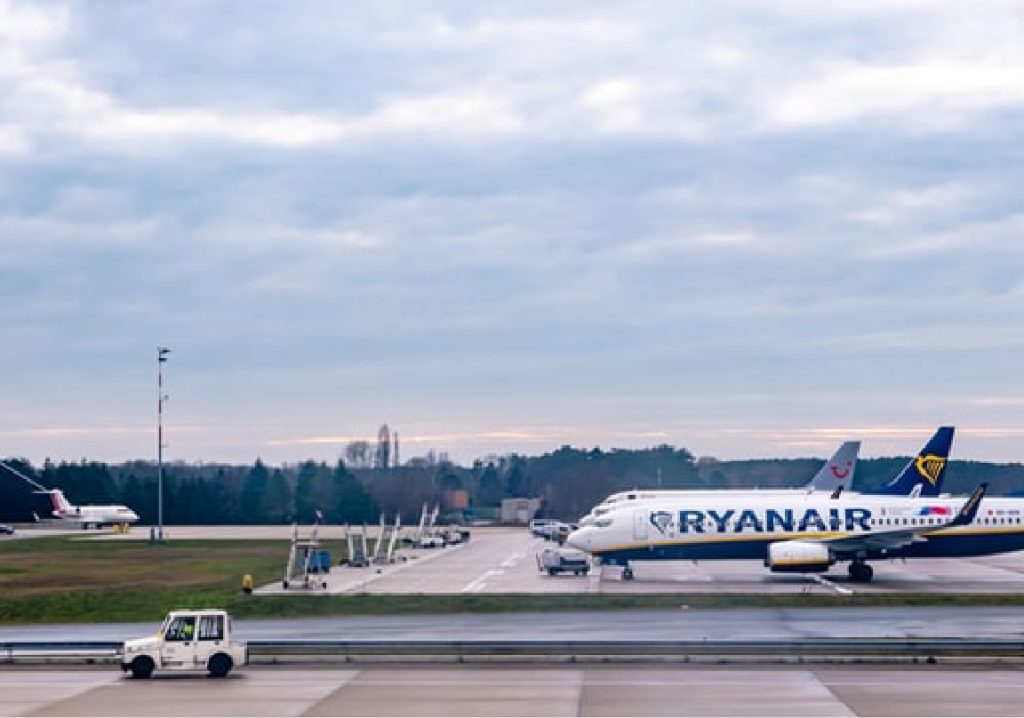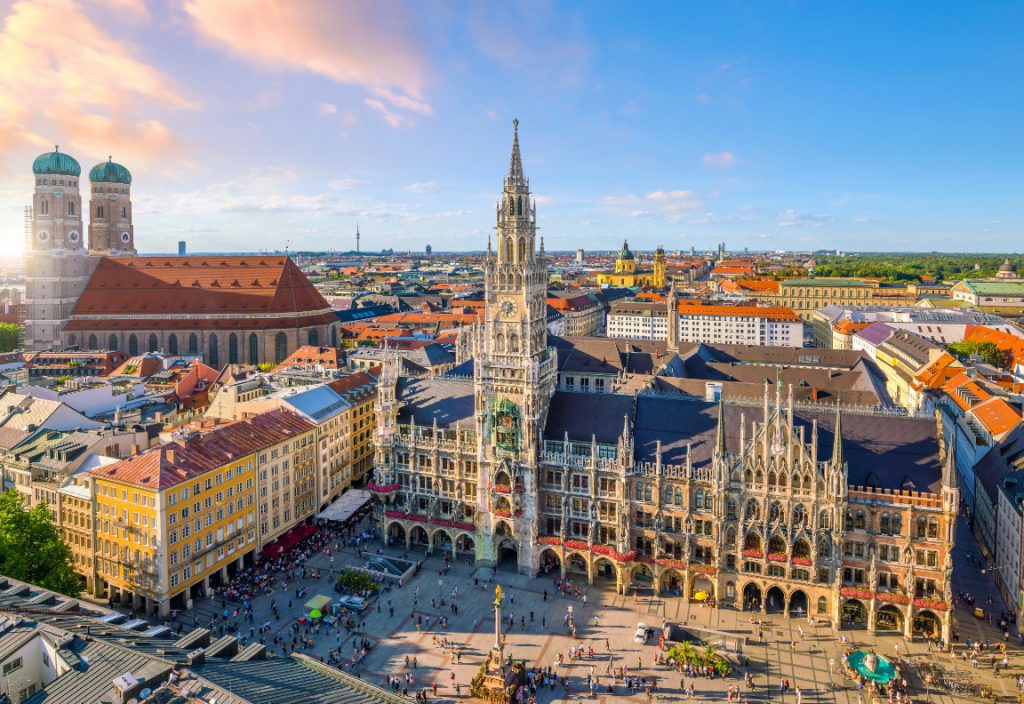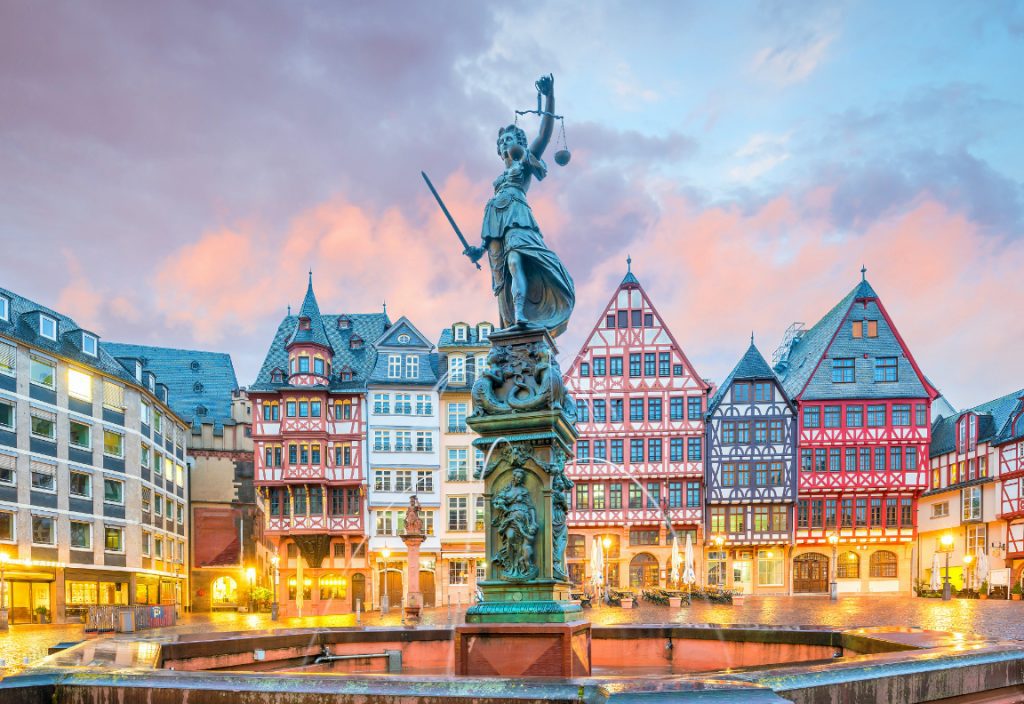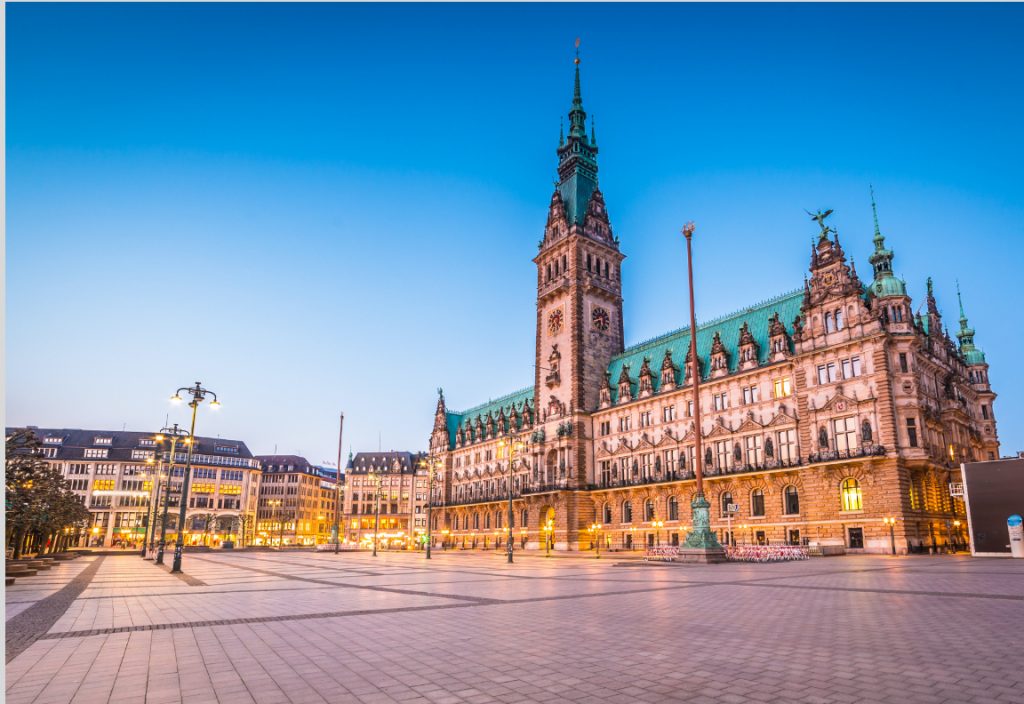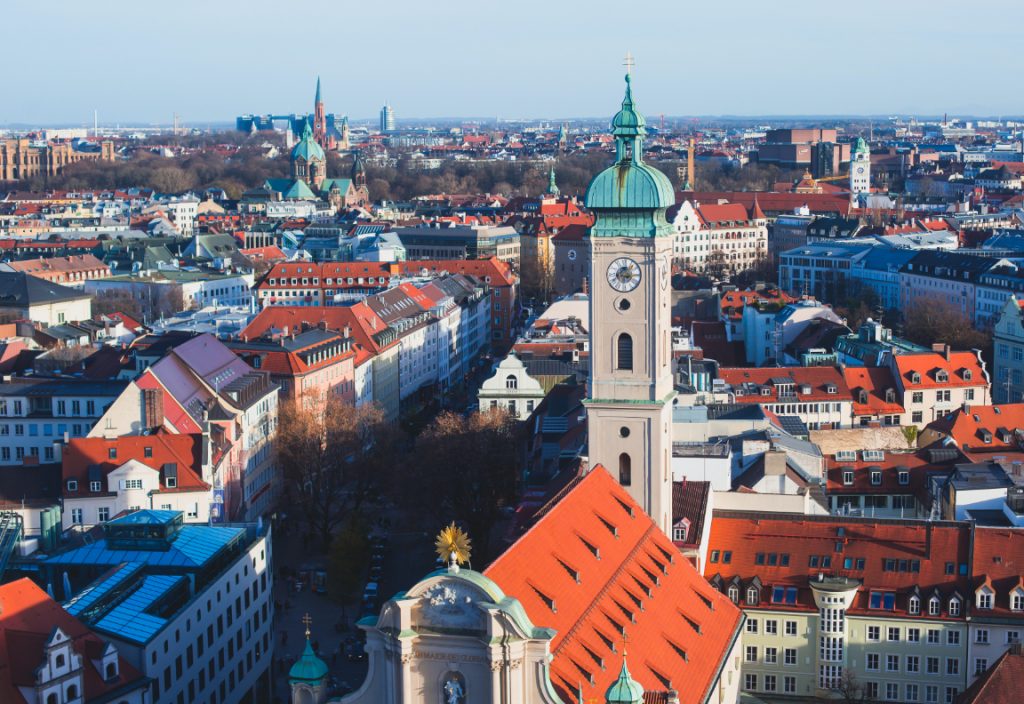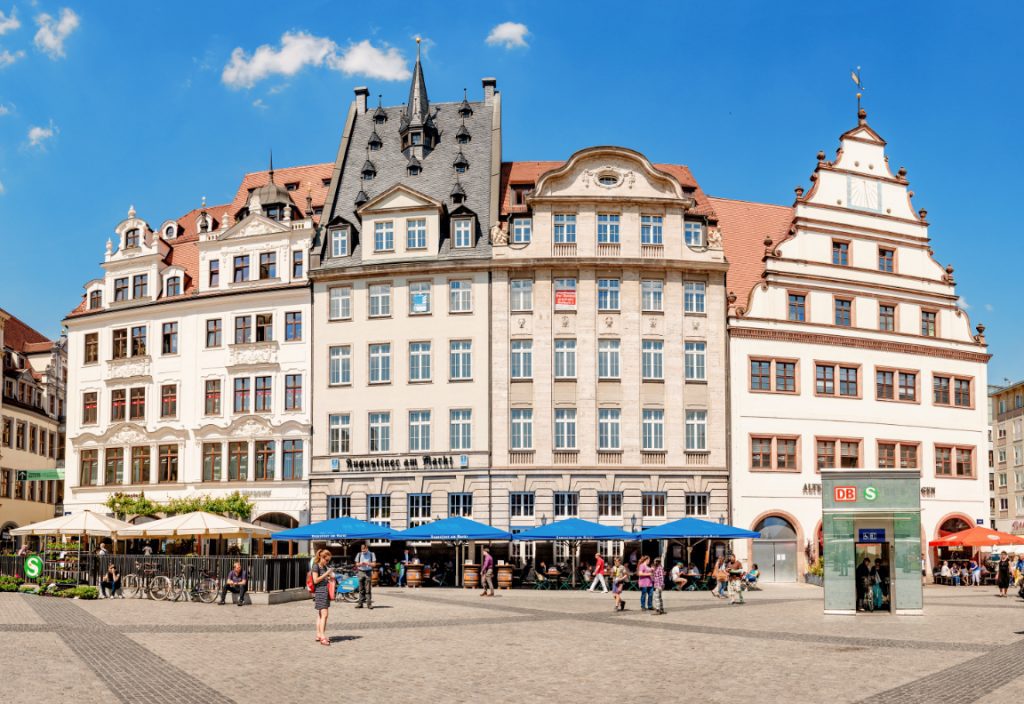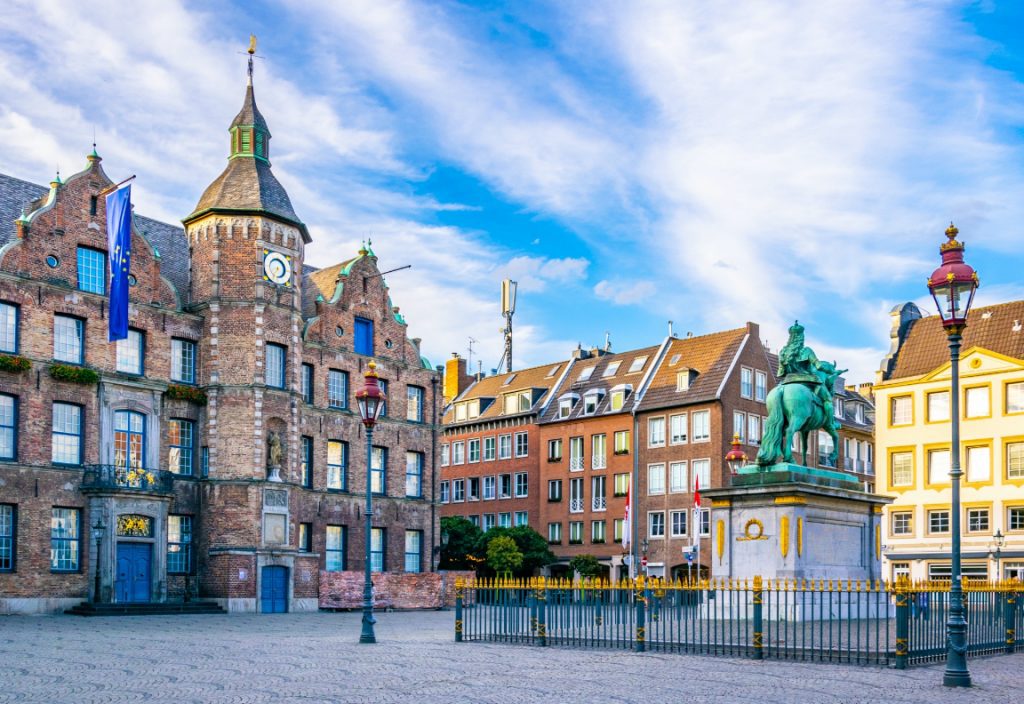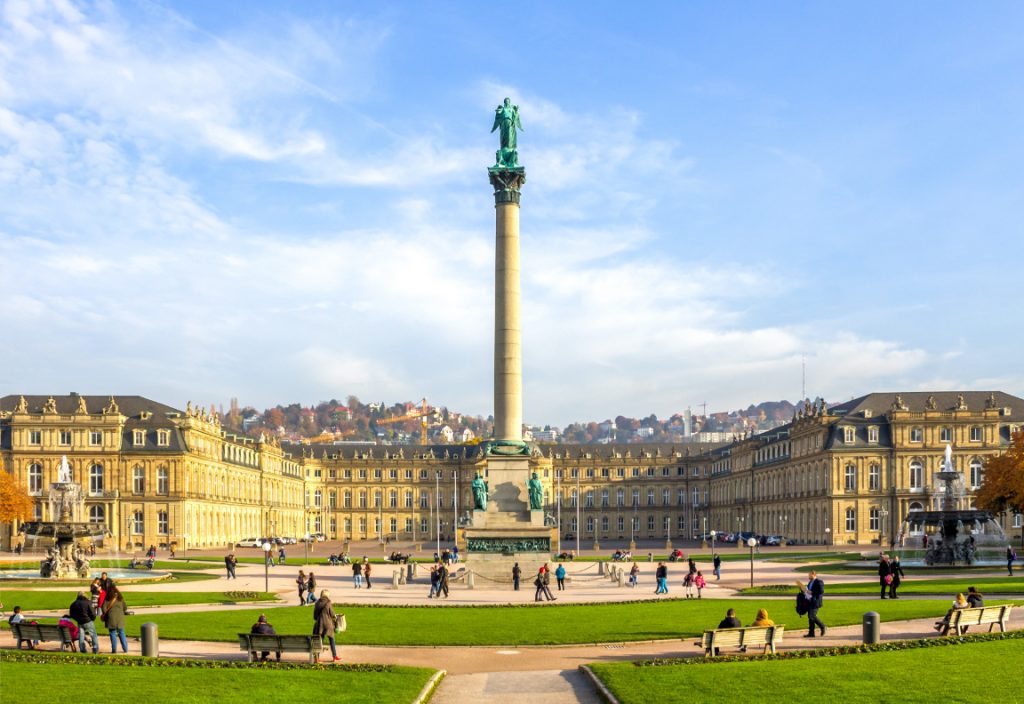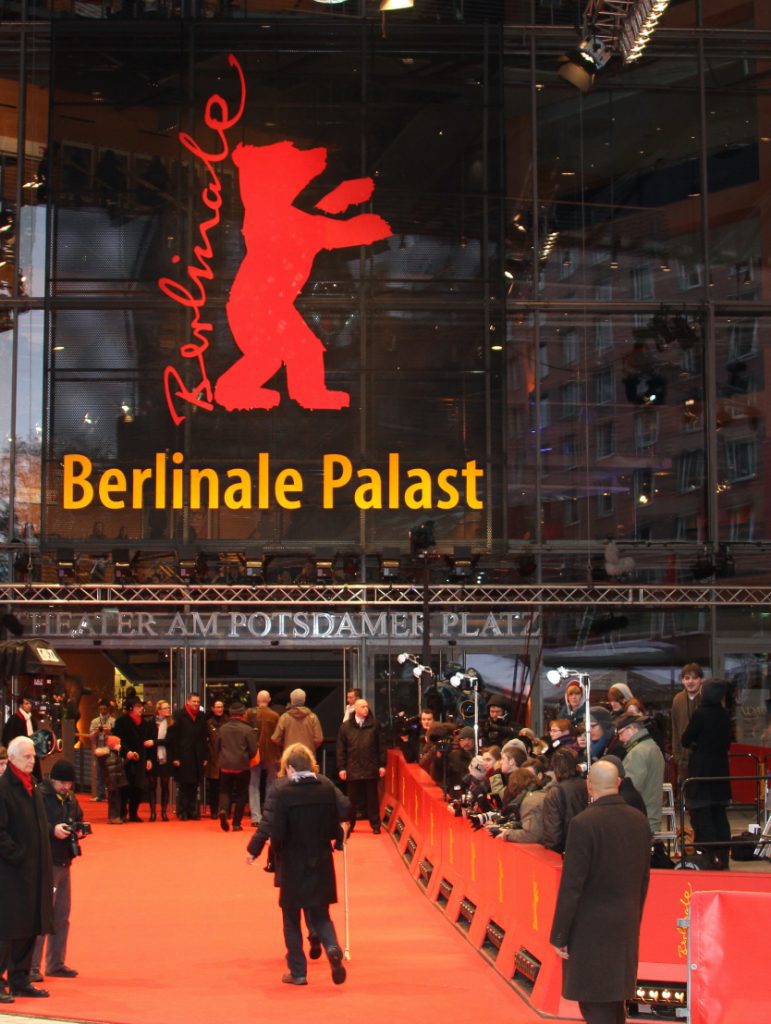International Student Population
As one of the leading destinations for international students, Germany had hosted more than 3,50,000 students in 2017. While in 2018, the numbers increased to 3,75,000, which is 6% of the worldwide population of international students. In the given years, the number of Indian students rose to 17,295, seeing a YoY growth of 13%. With this, India has emerged as the second most leading sending markets for Germany.

Country and Cities Population
Germany is the most populous country in Europe. As per 2015 census, it has an estimated population of more than 8 cr, with the majority residing in the eleven metropolitan cities. These cities account for 77% of the total population; some of them are:
1. Berlin – 3,520,031
2. Hamburg – 1,787,408
3. Munich – 1,450,381
4. Cologne – 1,060,582
5. Frankfurt – 732,688
Demographic
Attributing the balanced socio-economic public policies of Germany, the per capita income per person is $52,559, and average life expectancy is 80.3 years.
Domestic Travel
Public transport in Germany is modern, well-connected and has a dense network. The availability of planes, integrated bus, trams, U-Bahn, S-Bahn, and other inter-city transport makes it easier and pocket-friendly for international students to sail and explore the culture and history of Germany.
For domestic travel in Germany, international students can prefer:
Air
With broadly connected domestic airports, air travel in Germany is an efficient way to travel and cover longer distances in a shorter time.
Train
Germany has 43,468 km long railways network. Metropolitan cities have high-speed InterCity Express (ICE), while regular trains are available to travel from cities to even the smallest villages in Germany.
Bus
Bus network in Germany is both IntraCity and InterCity, and offers easy access to daily commuters.
Trams
Trams are one of the most used public transports in Germany and Berlin has the most extensive trams line in the world. They are alternate to buses and offer faster travel independent of city traffic.
U-Bahn
Metropolitan cities like Berlin, Hamburg, Munich, Nuremberg have their underground train network. U-Bahn is the fastest way to travel in these big cities of Germany.
S-Bahn
They are known as sub-urban trains and run between larger areas than trams. S-Bahn railway network is connected with national railways and urban centres.
International travel
Germany has some of the busiest international airports in Europe. For current flights from India to Germany, Indian students can check with Air India or other international careers for flight details as due to covid-19 precautions major flights are on hold.
Popular airports in Germany for international travel-
Frankfurt airport
Munich airport
Dusseldorf airport
Berlin Brandenburg airport
Tegel airport
Accommodation & meal
International students can easily Accommodate themselves in Germany without spending much money. However living in metropolitan cities like Munich, Hamburg, and Frankfurt is more expensive than eastern Germany. There are several accommodation options for international students, such as:
On average the cost of food in Germany is 150 Euros to 300 euros depending on the location of the accommodation. International students contact the international offices of their university or college to plan their stay in Germany.
Sightseeing
30% of Germany is calm and covered in flora and fauna, which offers a beautiful view of nature. Apart from natural beauty, human-made monuments are also part of the attraction.
Some of the famous places among international students are:
1. Berlin Wall
2. The Black Forest
3. The ultimate Fairytale Castle
4. Historic Forts of Hamburg
5. The Rhine valley
6. Cologne Cathedral
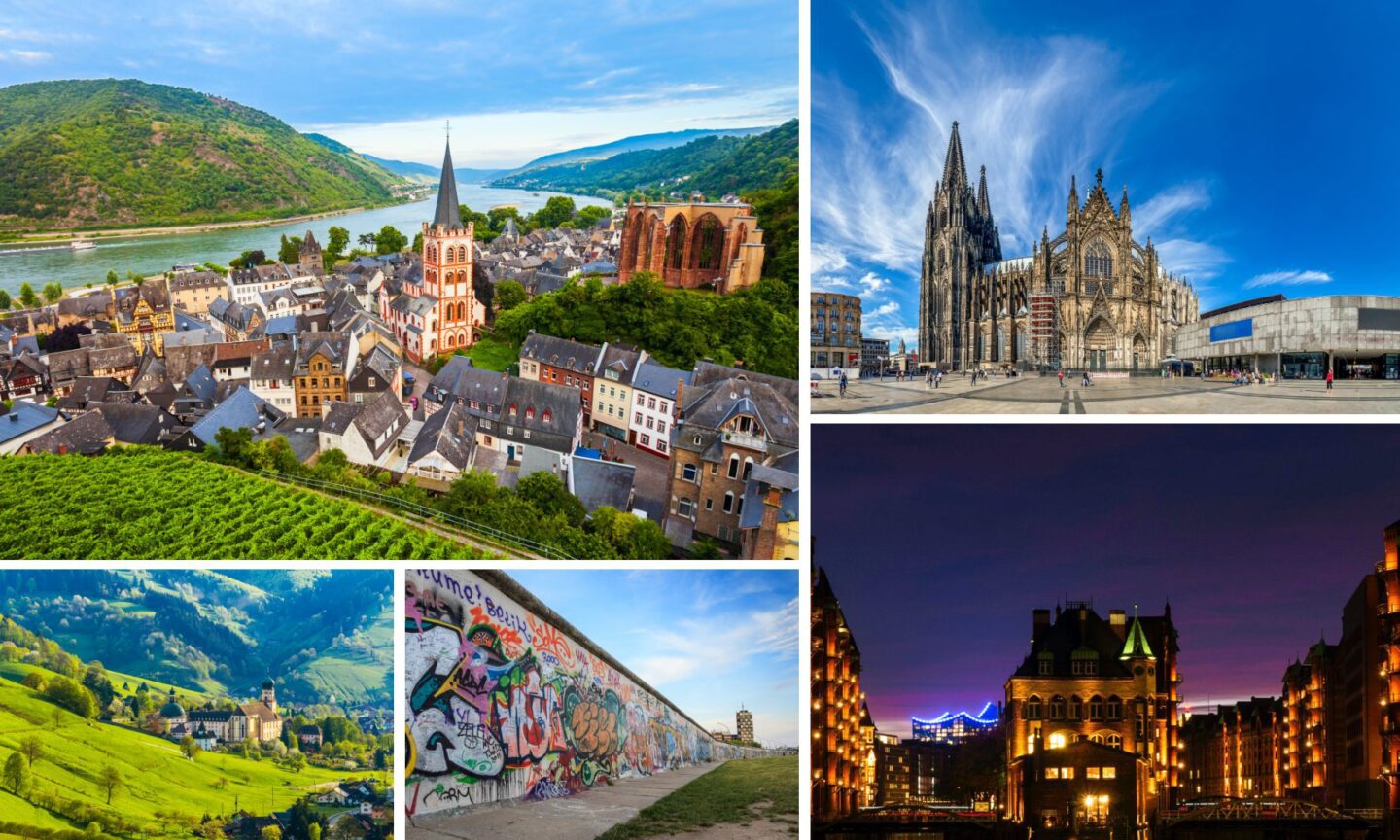
Weather
Being a European country, the weather in Germany stays hot with warm summers and rains throughout the year. While winters are chilling and it is recommended students carry woollen clothes if they are visiting Germany in the same season.
Currency
Germany is a European country and the currency in use is Euro since 2002. If you have already planned your journey to Germany, then you should exchange some INR to Euro from money exchange. You should carry enough money in euros to support your initial expenses, such as cab, food, etc.
Religion
Germany is a secular country, with people from different religions practising their religious values. However, around 55% of the majority population in Germany follows Christianity, with half of them identifying as Catholics. While 5% of people in Germany are a follower of Islam, and minor religions such as Hinduism, Buddhism, Sikhism, Judaism, etc. Despite being a Christian majority country, the culture of Germany is diverse and welcoming for international students.
Nightlife
Nightlife in Germany is highly enjoyable and socialisable with people. There are many clubs, restaurants, pubs, theatres, where international students can spend quality time. Cities like Berlin, Munich, Frankfurt, Hamburg, Cologne offer great nightlife assured by law and order.
Why live and work here
Standard of Living
As a developed country e Germany offers high standards of living which is inexpensive when compared to other European countries. The cost of living depends on accommodation, food, bills, and other expenses cost 850 euros per month or 10,200 euros per year.
Healthcare
For international students, it is required to have a Health Insurance to avail Public Health programs in Germany. The cost of Public Health Insurance is about 100 euros per month. In comparison, the cost of Private Health Insurance can vary from 400 to 700 euros per month. There are numerous Healthcare institutions in Germany which provide world-class facilities and treatment.
Economic Background of the Country
The economy of Germany is driven by the service sector that nearly contributes 70% of the total GDP, while others include industries with 29% contribution and Agriculture with 1% contribution. Germany has the largest economy in Europe and ranks in the top five economies in the world. There are many MNCs and homegrown companies that employ millions of people in Germany.

Stay back after studies/work permit
If you are planning to work in Germany after completion of your studies, then you will need to extend the validity of residence permit. It can be only extended by up to 18 months, and within this duration of time, you will need to find a job.
Student part-time jobs and wage rates
There are numerous work opportunities for international students while they are pursuing their study. However, they are expected to apply for a Work permit from the Federal employment agency, also known as Agentur fur Arbeit for the same.
Students can work as support staff at any restaurant, cafe, bar, etc. or take a relevant job such as research assistant, industrial production assistant, tutors, etc.international students are allowed to work for 120 full or 240 half days in a year, and 20 hours a week. While during vacations they can work full time. The minimum wage for international students in Germany is 9.19 euros an hour. Students, earning less than 450 Euros in a month are exempted from paying taxes.
Some popular part-time jobs that you can take up in Germany are:
1. Academic assistants
2. Baby sitters
3. Courier services
4. Teaching
5. Catering, And Waiter services
How to find a part-time job
In Germany, the Federal Employment Agency has a job exchange for international students. Students can also search for side jobs on online job exchange websites or contact student services to find a job. Apart from this, students should check the notice board at their university or college regarding local jobs.
Job culture ethics
The work environment in Germany is supportable to international students. They can work in any reputable organisation and grow their career without facing any partiality and inequality. Means, with the appropriate academic qualifications and experience, you can reach the top of your dream career. The work hours are also less in this country, and on average German people work about 35 hours a week.

Popular student cities
Many of the top-ranking universities in Germany are in its Metropolitan cities. Below is the list of most popular German cities among international students:
Berlin
It is the largest city and capital of Germany. There are many higher education institutions and research institutions in Berlin that rank top in the world. In the year 2015-2016, more than 117000 students were enrolled in various public and private institutes in this city alone.
Munich
Munich is the capital city of a German state, Bavaria. It is well known for the automobile, creative, IT, biotechnology, electronics industries. Besides, many MNCs also have headquarters in Munich. The international population in Munich is more than 5 lakh which is around 35% of its total population.
Frankfurt
Frankfurt is recognised as “Alpha World City” by Globalisation and World Cities Research Network (GaWC). With a total population around 7,60,000, it is the fifth-largest city in Germany. Frankfurt is also recognised as a global business hub as well as a favourite destination for international students in Germany. The most influential educational Institutions are Goethe University, The UAS, Frankfurt School of Finance and Management, Frankfurt University of Music and Performing Arts(FUMPA).
Hamburg
With a population of around 2 million, Hamburg is the second-largest city in Germany. There are as many as more than 30 public libraries in this city and six public universities such as the University of Hamburg, University of Music and theatre, Hamburg University of Technology, Hafencity University Hamburg and International School of Hamburg, oldest International schools in Germany.
Cologne
This city is best known for educational institutions such as the University of Cologne, Technical University of Cologne, and German Sport University. Including this, there are many other research institutes as well German Aerospace Centre, Max Planck Institute for the biology of ageing, Popular private colleges include Catholic University of Applied Sciences, Cologne Business School.
Leipzig
It is located in the German state of Saxony and has a population of around 6,00000. Leipzig is also known as “The new Berlin” due to its significant economic potential and contribution to the German economy. The standard of living in the City is excellent, and it offers exceptional career prospects for students. Some of the top-ranked institutions and research centres in Leipzig are Leipzig University, Leipzig University of Applied Sciences, Leipzig Graduate School of Management, Max Planck Institute for Mathematics in the Sciences.
Heidelberg
Heidelberg is one of the most popular tourist destinations in Germany. This city is also a unique place for international students to grow their academic career. There are many prestigious educational institutes like Heidelberg University, and research institutions and schools such as European Molecular Biology Laboratory, German Cancer Research Centre, Max Planck Institute of nuclear physics, Heidelberg International School.
Dusseldorf
It is the seventh-largest city in Germany and the capital of German state of North Rhine-Westphalia. The city offers numerous career opportunities for international students with its exceptional education institutes. There are 22 higher education institutes in Dusseldorf along with Heinrich Heine University, which is home to thousands of international students.
Stuttgart
Stuttgart hosts a large number of immigrants, including international students. As many as every third person in the city is a foreigner. There are many famous higher education institutions in Stuttgart such as the University of Stuttgart, University of Hohenheim, State University of Music and Performing Arts, Stuttgart Technology University of Applied Sciences.
Dresden
Dresden is the capital city of the German state of Saxony and the fourth largest city by area. Every year millions of tourists visit this city due to its famous landmarks such as Zwinger, Royal Palace and Moritzburg Castle. There are many research institutes and Universities in Dresden such as Dresden University of technology, and Helmholtz-Zentrum Dresden-Rossendorf.
German People and Culture
History of Germany
The presence of humans in Germany is dated back to 6,00,000 years ago. It signifies the rich history and significant cultural values that this country holds. As a student, you’ll be amazed to witness the biodiversity, historical monuments, and modern urban cities that are reminiscent of its development. While the post-world war advancements in the field of infrastructure, industry, and public services sectors are also noteworthy.



Demographic information
Germany has a total area of around 3,57,000 km2 and a population of 83,166,711 as per the 2019 census. It is the 18th most populated country in the world and offers superb living standards with an average life expectancy of 80.3 years.
Language
The official language of Germany is German and is spoken by the majority of the population in Europe. However, as many as 70% of people in Germany are also able to communicate in the English language. While among immigrants, most spoken languages are Arabic, Balkan, Kurdish, Polish, and Russian.
National Events
Germany celebrates the national day on 3 October every year since 1990 to mark the German reunification. Including this, many cultural events and festivals take place from January to December and last forever in the memories.
1. Oktoberfest
2. Karneval
3. New year’s eve
4. Unity Day
5. Christmas
6. St Stephen’s Day
7. Easter
8. Good Friday
9. Three Kings Day
10. Hafengeburtstag
Main Festivals
The cultural values and traditions enrich the colourful festivals in Germany. International students can find these celebrations as the best time to connect and socialise with new people and learn about them. Here are some famous festivals around Germany:
Berlinale Film Festival in Berlin
Cannstatter Volksfest in Stuttgart
Karneval in Cologne
Oktoberfest in Munich
Reeperbahn Festival in Hamburg
Rhein in Flammen in Koblenz
Wurstmarkt in Bad Dürkheim
Indian festivals in Germany
Being home to many Indian students, Germany hosts Indian festivals that are celebrated widely every year. The locals and foreigners also enjoy the festivals of India, it includes Kite flying, Navaratri, Holi and Diwali.

Health and Safety in Germany
- Germany’s health system for international students
- Insurance & providers
- Student helping NGOs in Germany
Germany’s health system for international students
Germany spends a large part of GDP on improving and running healthcare services. The government mainly funds healthcare in Germany, while less than 25% is privately funded. Also, for every citizen in this country, including foreigners and international students, it’s necessary to have health insurance.
Students enrolled in higher studies can take public health insurance, and pursuing language courses with age more than 30 years are required to take public health insurance.
Insurance & providers
If you want to study in Germany, then having health insurance is a prerequisite. You can either get public health insurance or a private one. It is recommended to search for insurance before enrolling in a university or other educational institutes. The benefits include cover for costs of check-ups, accident, illness, hospital stay and medications.
For more information with insurance and healthcare, you can click here.
Student helping NGOs in Germany
International student community will always find a way of support for themself in Germany. Like there are many NGOs that provide help to the needy students from abroad.
Student Support Centers
It is always suggested to first contact local authorities and the Indian embassy in case of any emergency. Germany has dedicated student support centres to mainly support international students with their problems related to stay, study, etc.
Emergency Helplines
First aid or fire emergency – 112
Police- 110
Non-emergency medical assistance- 116 117
While calling to any of the above-mentioned services, students should mention their name, addresses, and issue for quick redressal.
Best Places to Visit in Germany
Covered in scenic beauty to the rich history, Germany offers wonderful land for students to explore. Here we have listed the most popular places in Germany that international students can visit.
The Brandenburg Gate
To explore the cultural and historical Values of Germany, students should visit Berlin. Brandenburg Gate in Berlin was built in the 18th century and is the city's first new classical structure. It is 26 metres high and recognised as a symbol of unity and peace.
Munich’s Kunstareal
The Kunstareal in Munich attracts thousands of tourists every year. It is famous for a large variety of art museums that display beautiful collections architecture and fine culture of Germany.
Dresden state theatre
Due to its architecture and art treasures, Dresden was the most beautiful city of Germany before the world war. Post world war, this city has been redeveloped and also features Dresden state theatre that reflects the post-world war reconstruction in Germany.
Karl Theodor Bridge
This Bridge was completed nearly 250 years ago and also known as the old Bridge. The architecture of Karl Theodor Bridge is arch-based and is located in Heildinburg city and crosses the Neckar river II to connect with the Eastern part of Neuenheim district. Considering its historical value from the architecture perspective, Karl Theodor Bridge is a must-visit place for the students.
Museum of Fine Arts
Founded in the year 1837 the Museum of Fine Arts attracts thousands of tourists every year. It is the 17th largest museum in the world with more than 450000 artworks. It is the best place to visit for art lovers.
Cologne Cathedral
The Cologne Cathedral is Germany's most visited Landmark among tourists, with 20,000 average people visited in a day. It is 157 metres tall and has been declared as a World Heritage site and represents German Catholic and Gothic architecture.
Gothic Fountain
The Gothic fountain is located in the main market square of Nuremberg city. This fountain marks the medieval architecture in Germany. It is 19m tall and was built by Heinrich Beheim in the year 1385 - 1396.
The Black Forest
When it comes to experience the nature of Germany, there is no place better than wandering in the Black Forest. It spanned from High Rhine in the South to Kraichgau in the North, with an area of 160 km long and 50 km wide. There are many lakes and rivers in the Black Forest, which make it a great place for tourist attraction.
The Mosel Valley
The Mosel Valley in Germany is located in the southwestern part, while it also passes by countries such as France, Luxemburg, and Belgium. It’s a great place to visit in summer, and it holds immense historical and cultural values of Germany. There are old houses in nearby villages that date back to 400 years ago.
Europa Park
Europa Park is Germany's largest and Europe’s second-largest theme park. Due to its challenging Roller Coaster rides, water rides, Euro Dance Festival, it attracts millions of visitors every year. Along with this, this park hosts many events and themed areas of different countries.
Immigration & Citizenship in Germany
Student visa
An international student can apply for three types of German visas issued for study purposes. You will need a student visa when applying for a German university. Language course visa is required while you are pursuing a language course in Germany. Students can also apply for a German student applicant visa that allows them to enter Germany and complete the process of their admission in a university or higher institute.
The German study visa allows you to enter Germany. But as an international student, you are required to apply for a residence permit within three months after your arrival. You have to submit your application for the same at a foreigner office.

Extend your visa
German Visa only allows you to enter Germany, and within 3 months of arrival, you are required to apply for a residence permit and get a temporary residence number. This permit is valid for 2 years, and you should renew it before expiry. To apply for it, you will have to first find a permanent house. Then locate the nearby Residence Office and register your living address. Along with this to get a confirmation of registration, you are required to submit the following documents.
- Valid passport
- Current Visa
- Rental agreement
- Letter confirming your living address
- Health insurance
- Proof of funds
- Resident permit fee of hundred euros
- Certificate of enrolment
- Biometric passport photos
- Proof of language proficiency

Germany's plans to invite immigrants
In the wake of the coronavirus pandemic the registration for Visa and other immigration permits are halted. You can connect with one of our executives to learn more about how to apply for a Student Visa.
Post-study work Visa
After the completion of your course, you are allowed to find a relevant job in Germany. While searching for a job, Germany allows international students outside European countries to stay in Germany for up to 18 months. However, they will need to extend the validity of their Residence Permit.
PR & Citizenship
Germany offers permanent resident and citizenship to international students after 8 years of stay in the country. However, there are some rules and terms that need to be followed to get a German Settlement Permit. The requirements include higher education from a recognised German institute, 2 years of work experience post-study, and valid residence permit.
Some other checks need to be met for obtaining permanent resident status in Germany. You should contact the local foreigner’s office to learn more about this process.
Language requirements
International students from nations with English as their first language or those who have completed their education in the same language are not required to undergo language test for Visa.



